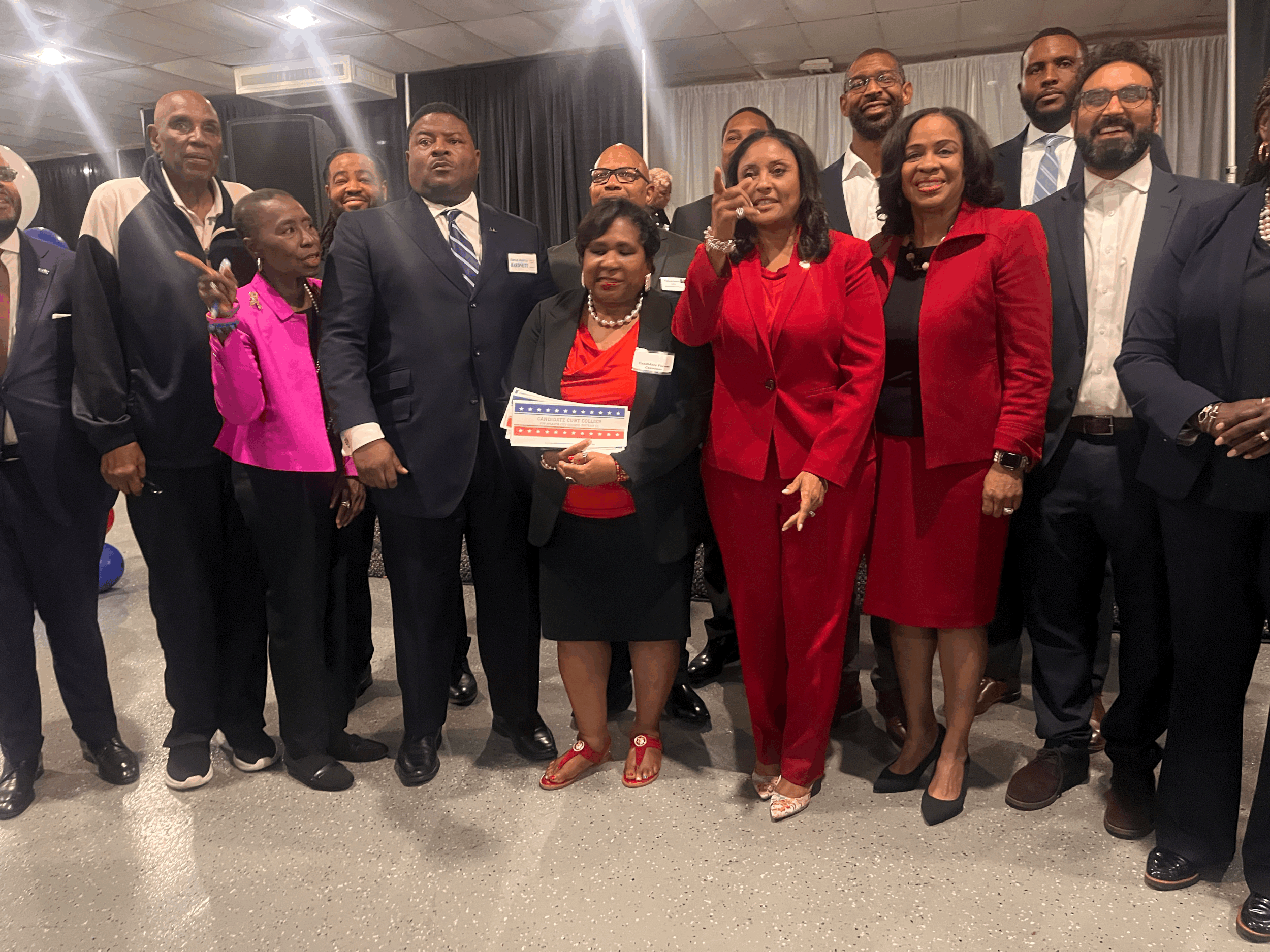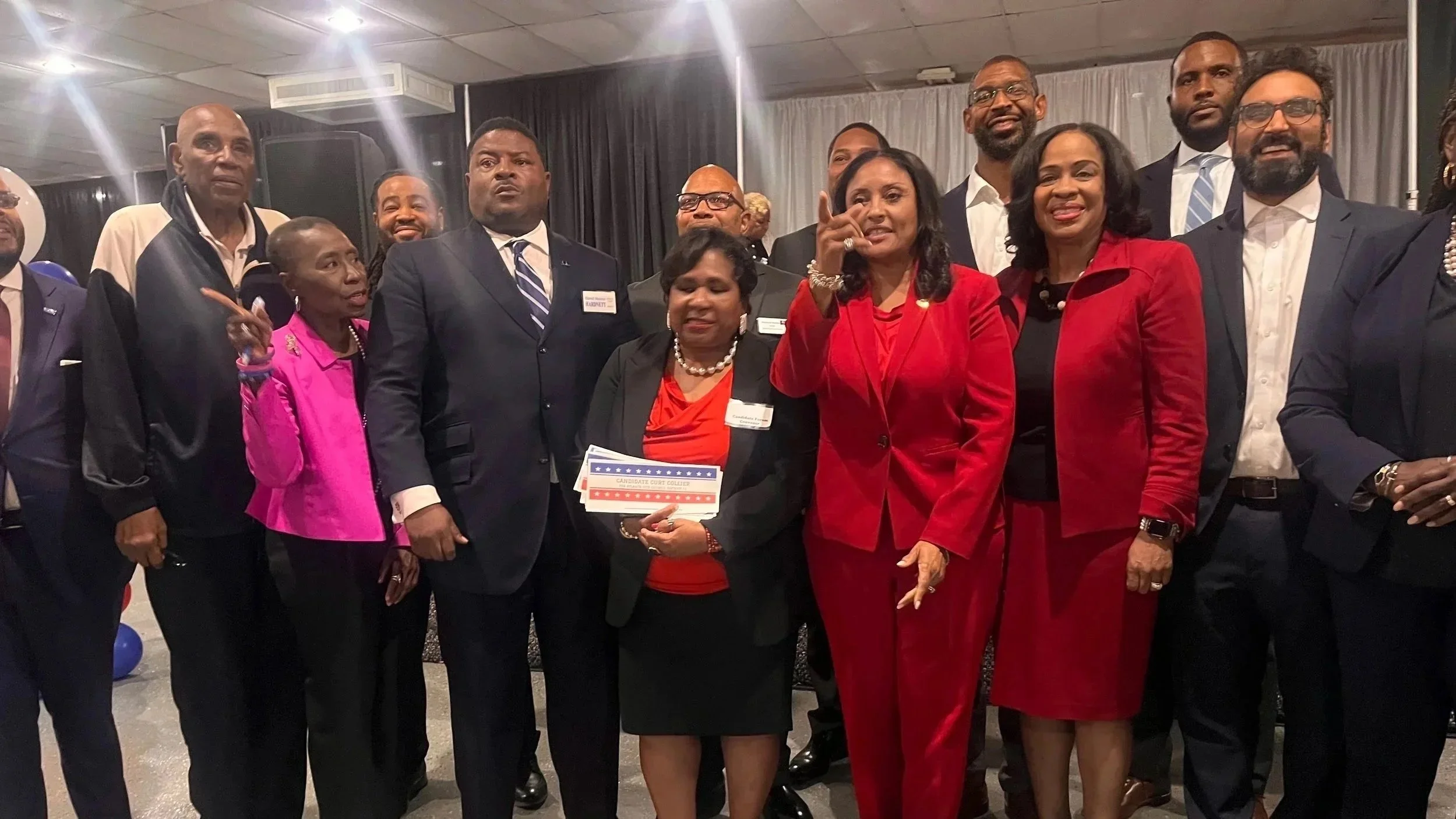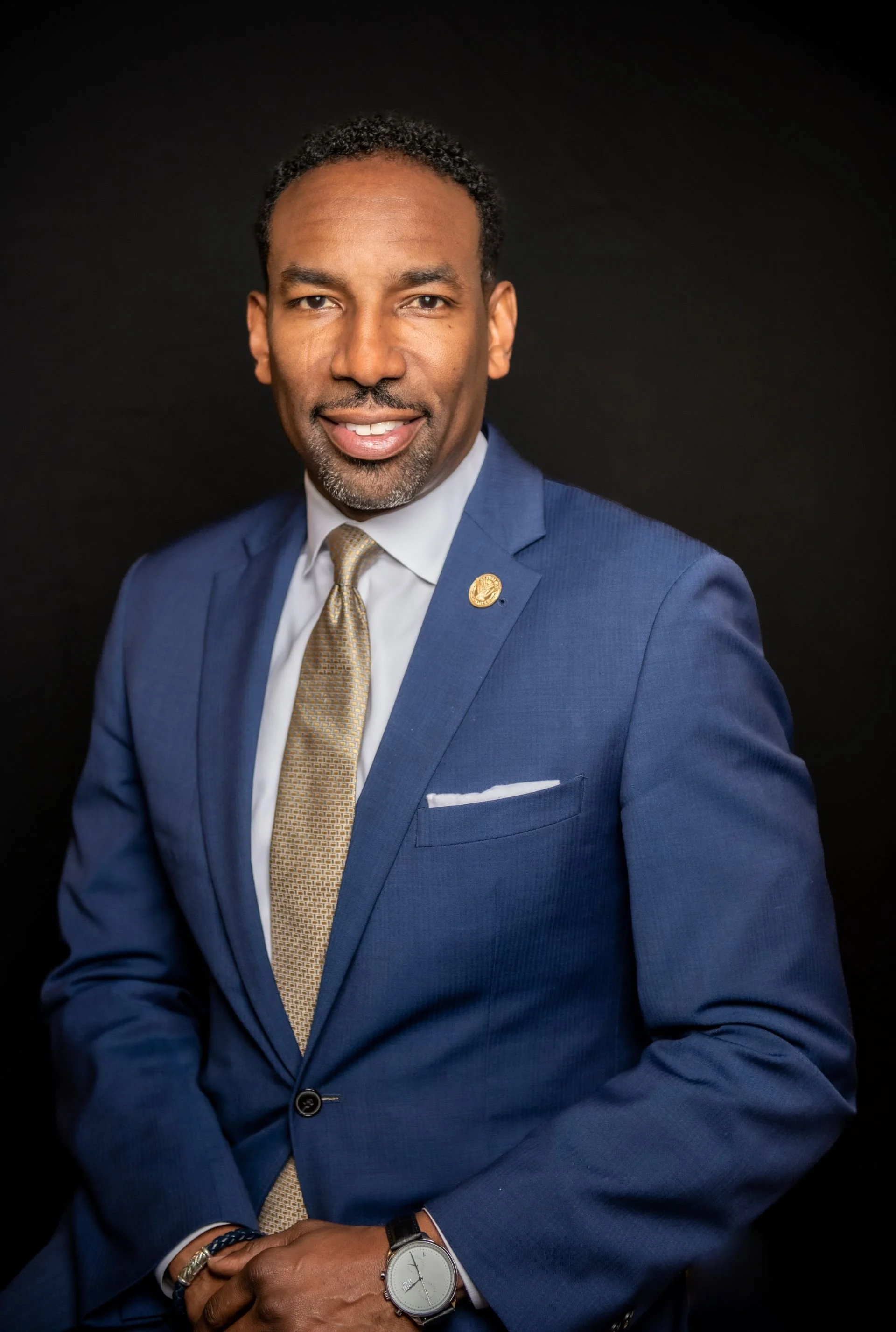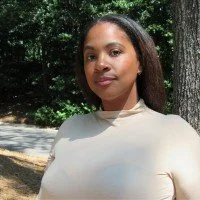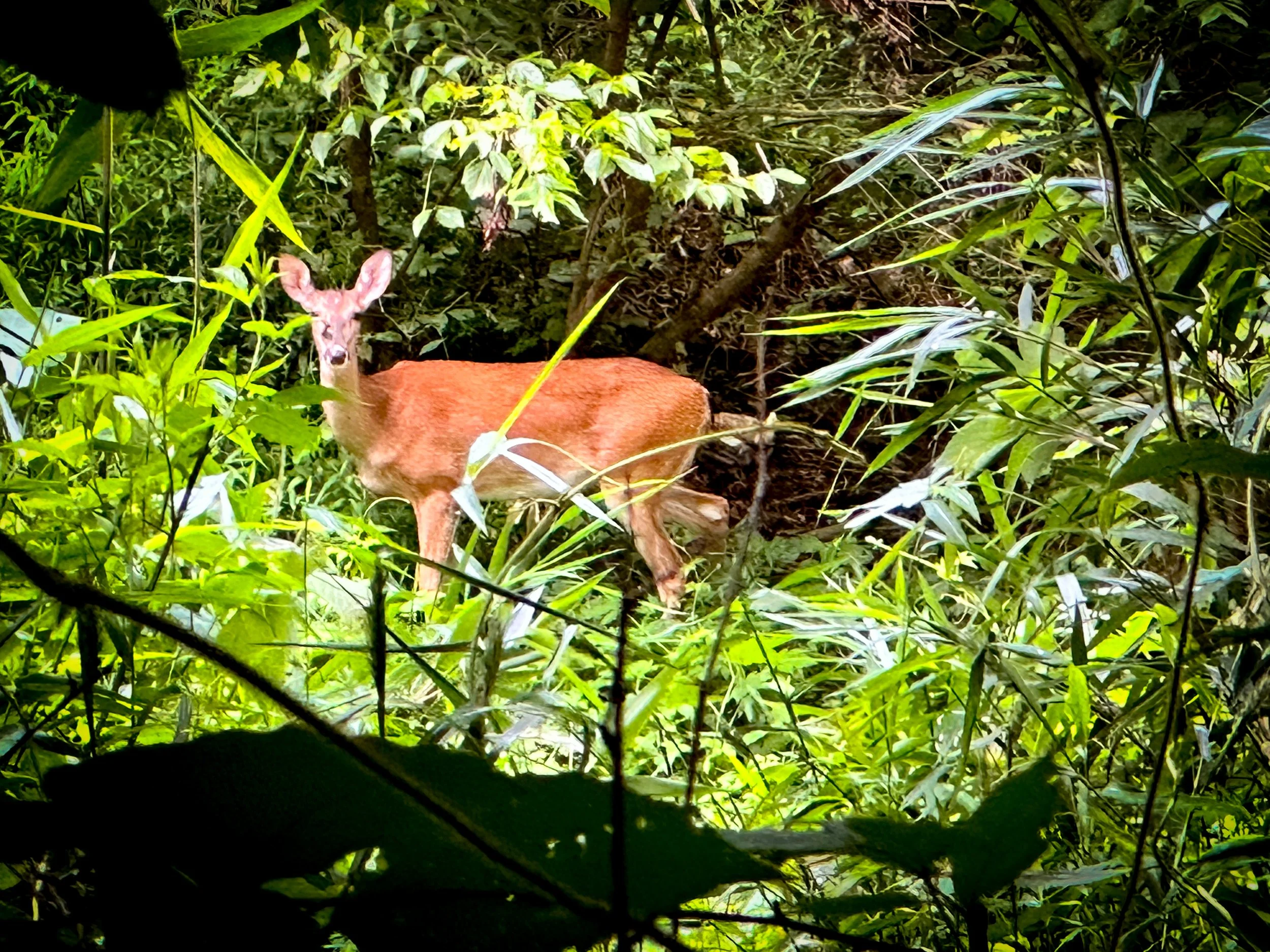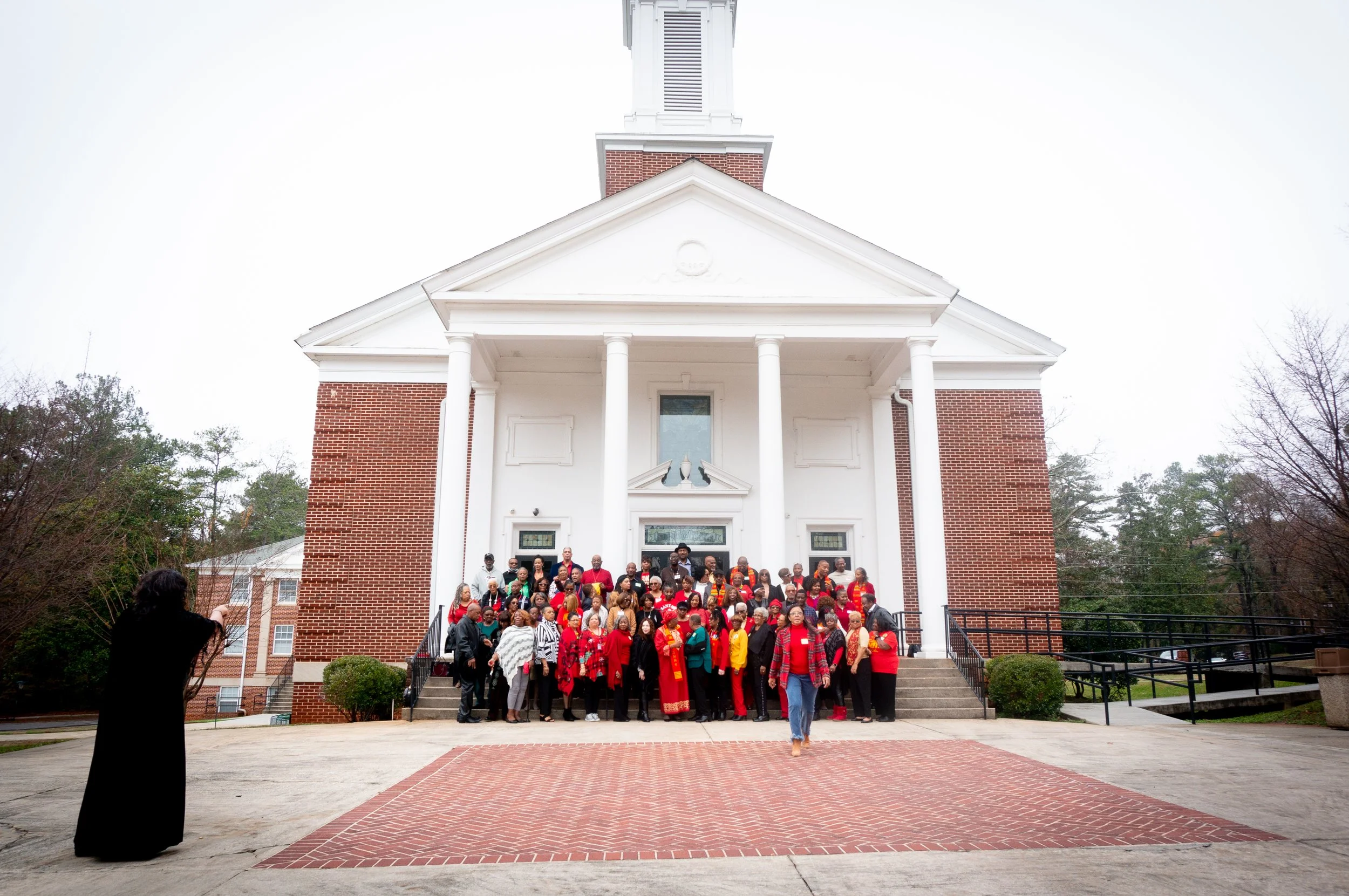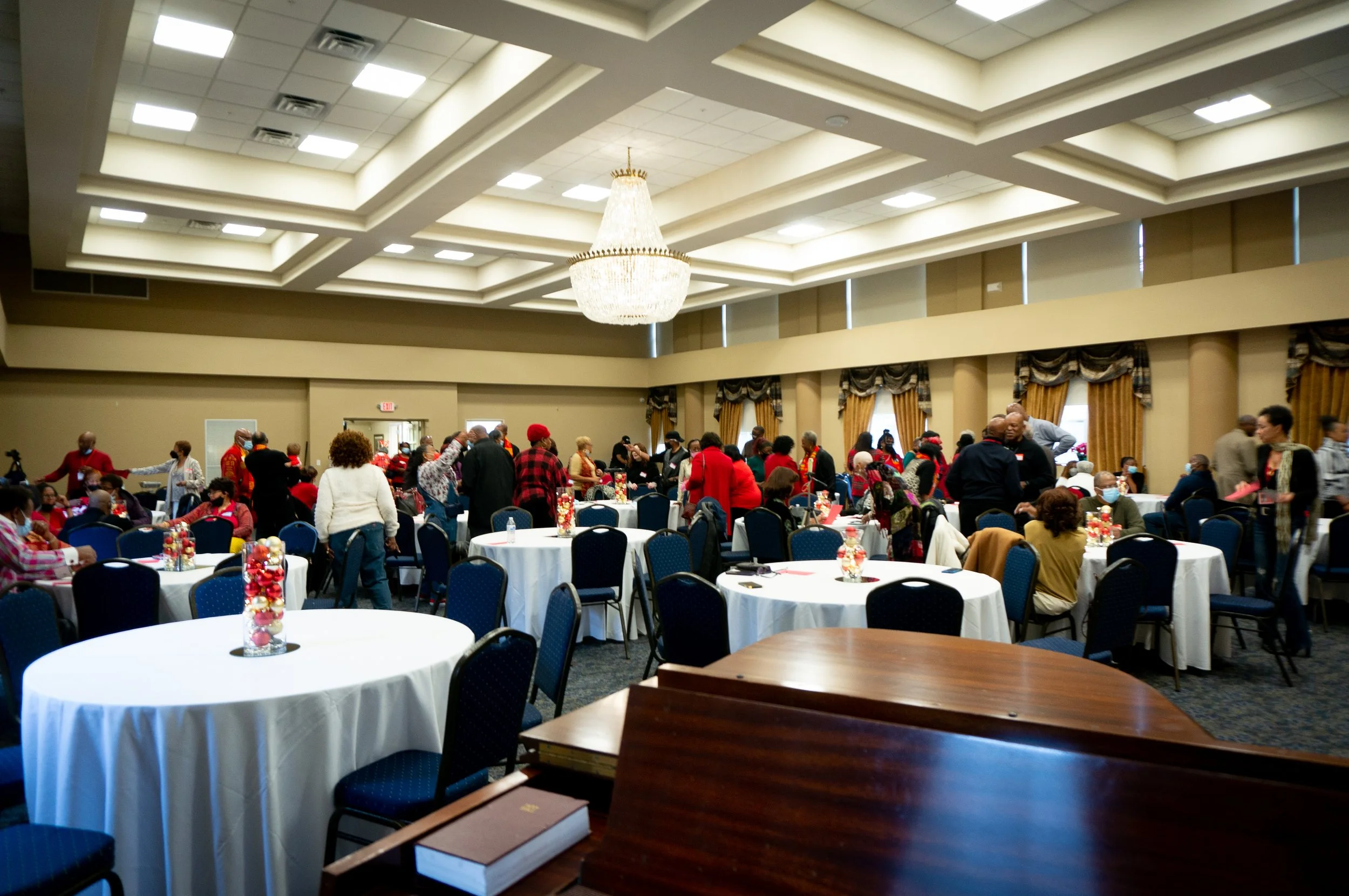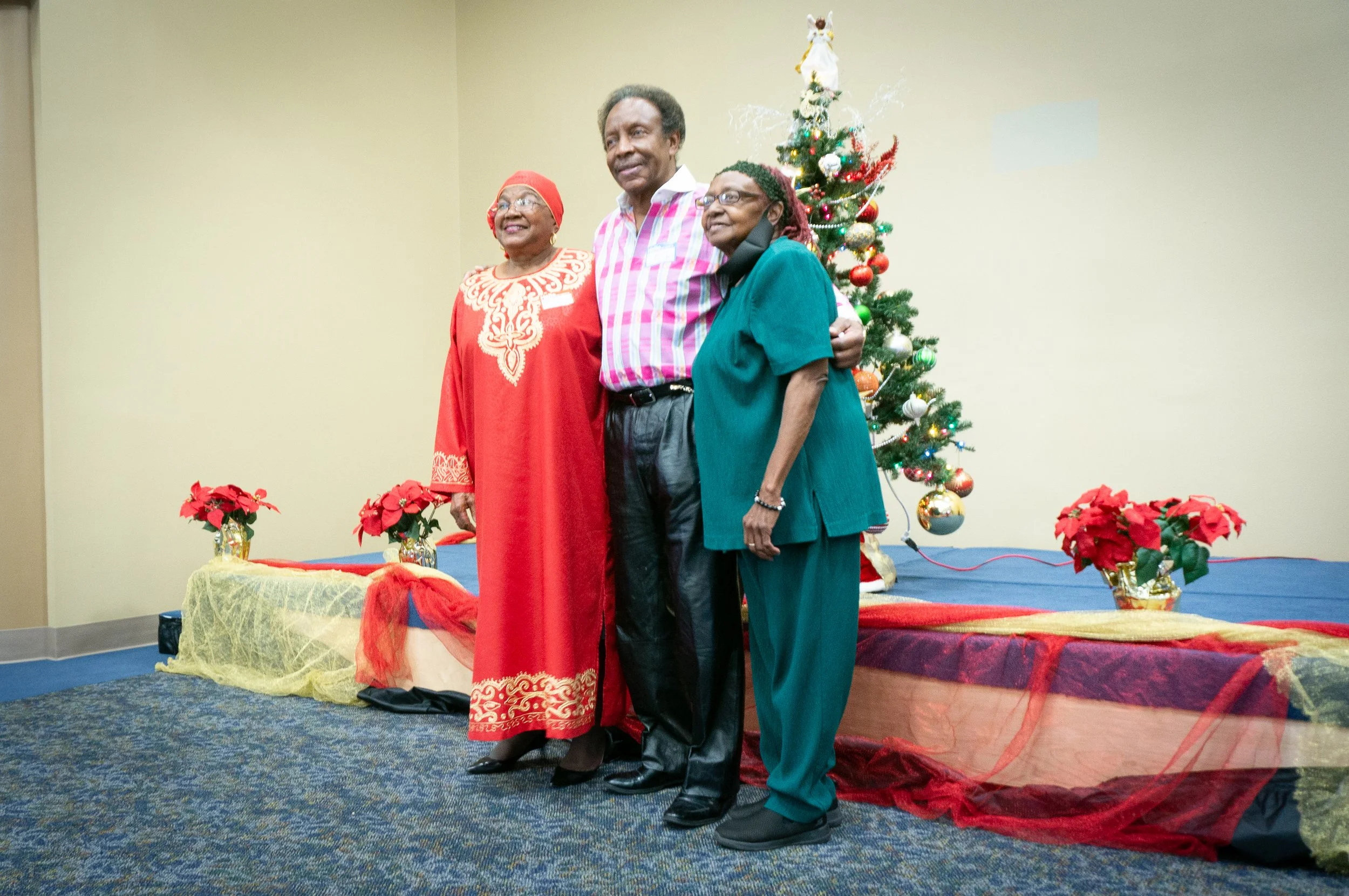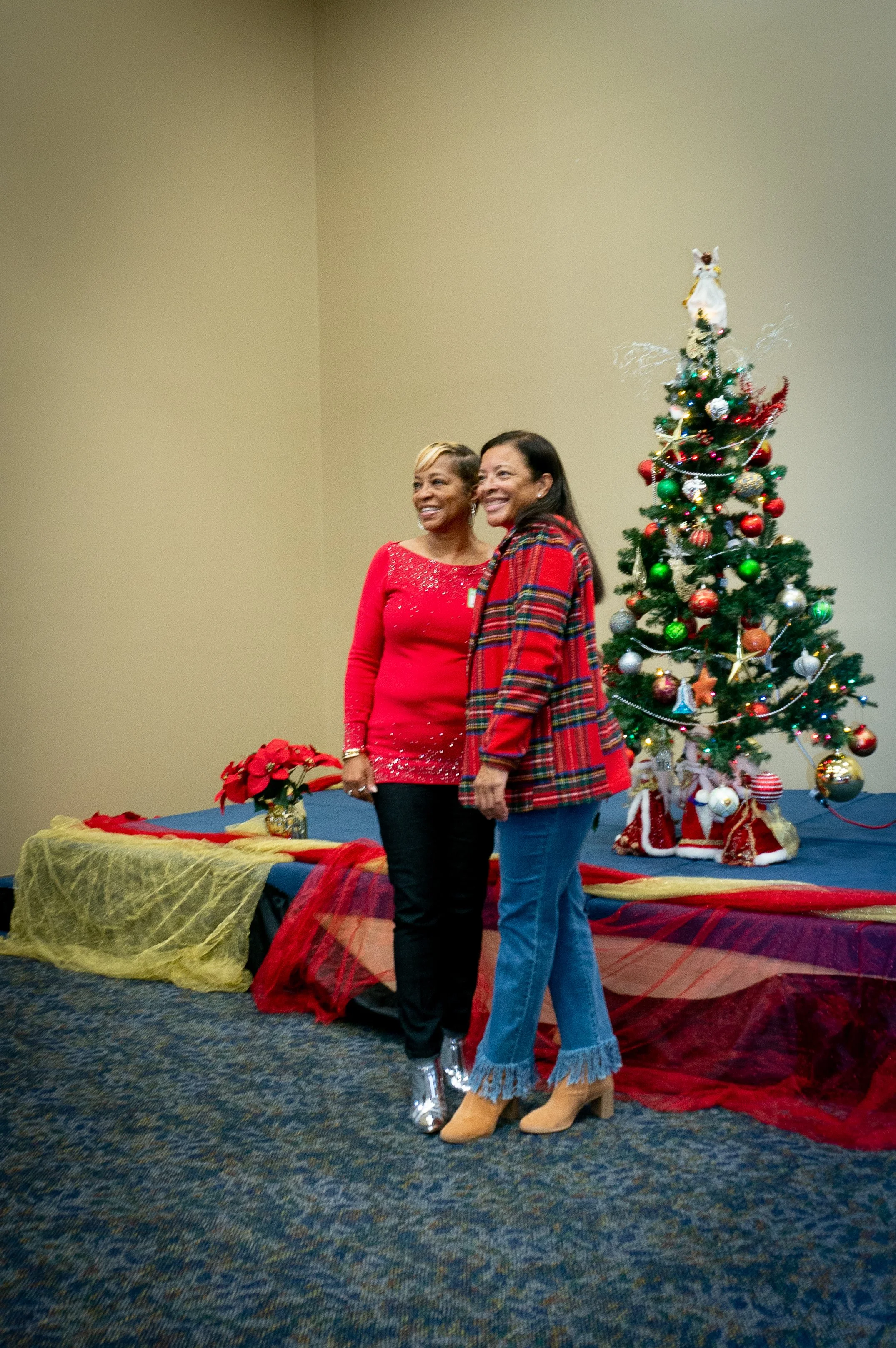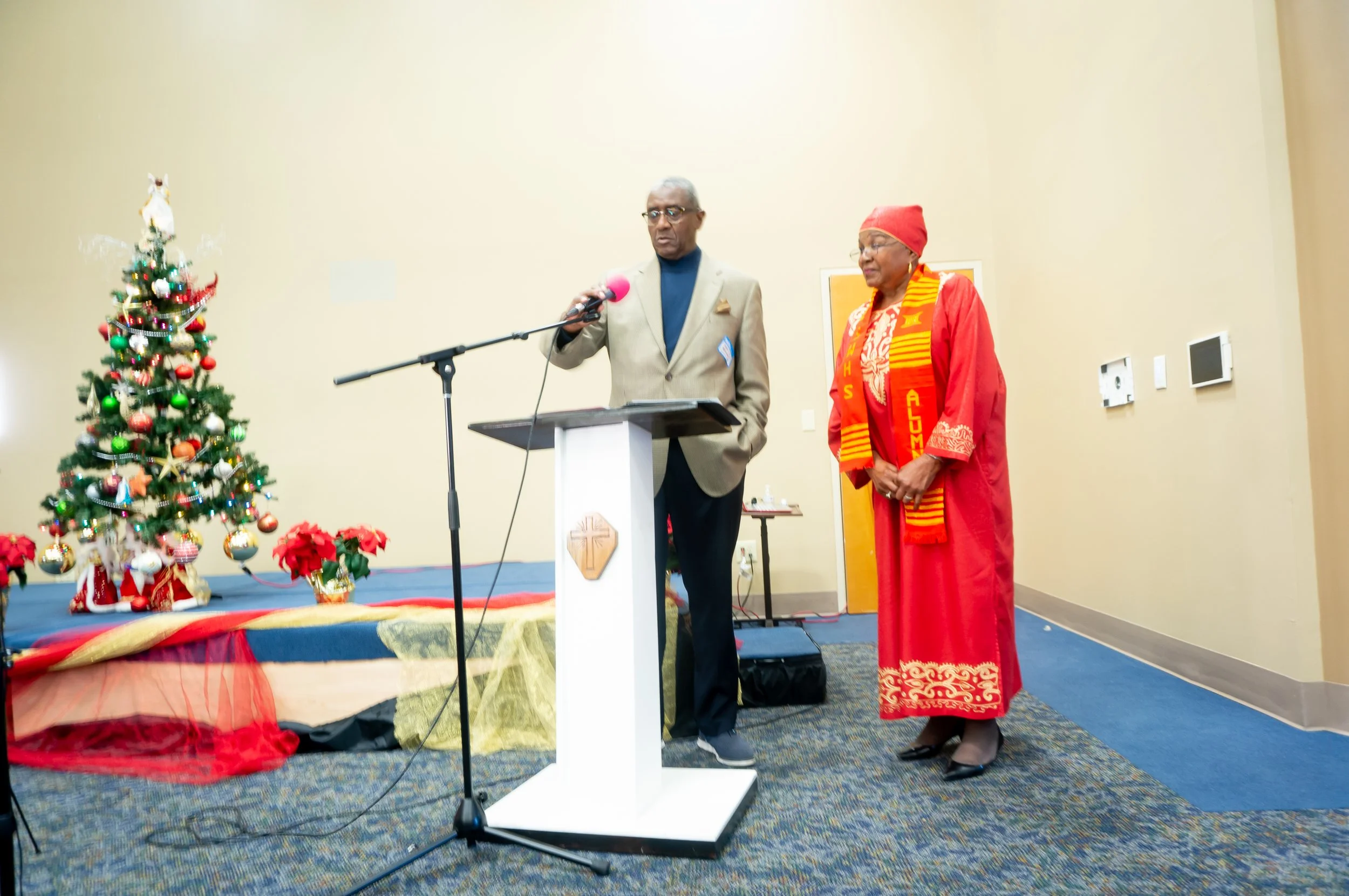Cascade Votes
Southwest Atlanta Municipal Elections Forum Group Photo
Municipal Candidates at Southwest Atlanta Forum
The Next Four Years
It’s election season and let me tell you, there are a lot of items on the docket. Not to worry, I’ve got your shortlist right here. Whether it’s Atlanta Board of Education, City Hall, or the Georgia Public Service Commission, it’ll all be covered here. Be sure to scroll to the end because there is an” Act 358, SB 330: Independent School District Ad Valorem for Educational Purposes” measure to vote on as well concerning whether or not our seniors will get a break on paying a portion of school board taxes.
This is long, so here is an outline of what’s below, to help you navigate:
Special Statewide Election
Georgia Public Service Commission Districts 2 & 3
City of Atlanta
Mayor of Atlanta
City Council President
At-Large Posts 1, 2, & 3
City Council Districts 10, 11, & 12
Board of Education Districts 2, 6, and At-Large Post 8
Municipal Court Judges
Act 358, SB 330 concerning senior homestead exemptions for $50,000 of assessed value
State Wide Special Election (1 of 2)
Georgia Public Service Commission District Map. We are in district 3, but we’ll be voting for both district 2 and 3 positions, state-wide.
Georgia Public Service Commission (GPSC)
Utility bills are generally affected by who is serving in your GPSC district. Though Cascade (and all of Fulton County) is located in District 3, we will be voting for both statewide districts 2 and 3 in this partisan race. Here are the candidates for GPSC Districts 2 and 3:
GPSC District 2 - In alphabetical order:
Tim Echols (R, Incumbent)
Alicia Johnson (D)
GPSC District 3 - In alphabetical order:
Peter Hubbard (D)
Fitz Johnson (R, Incumbent)
City of Atlanta (2 of 2)
The Mayor, City Council President, and City Council Members' seats are all open for election and/or re-election. Nine Municipal Court Judges are up for retention. What’s retention in this case? Well, our municipal judges are each appointed by Atlanta Mayors, and during each of their election seasons, we get to decide if they should be “retained.” They don’t have opponents, because they were not elected by the people. On your ballot, you will simply select “Yes,(keep them)” or “No (don’t keep them).”
Atlanta Mayor, Andre Dickens. Dickens’ challengers are photographed below from left to right in alphabetical order.
Atlanta Mayor
The Executive Branch of the City of Atlanta is headed by our mayor. Mayor Andre Dickens is the incumbent seeking another four-year term. There are three people running against him for the position. Here is the list of candidates of the nonpartisan mayoral race in alphabetical order:
Atlanta City Council President
The City Council President is an independent office. Some duties of the council president are to decide which council members sit on the council’s standing committees. If there is a tie in a council vote, the president can break the tie. Another rare duty of the council president is to step in as mayor in the event that the mayor may be unable to perform their duties. Essentially, if city policy, and thus the city’s future were a deck of cards, the president gets to stack the deck, deal the cards and call the game if a misdeal was claimed. Doug Shipman, the current City Council President, is not running for reelection. Here is a bit about the two candidates vying for this opening seat, in alphabetical order, as they will appear on the ballot:
Malhotra is a policy professional, and founder of 10-year old Atlanta’s Center for Civic Innovation, a nonprofit for civic education and engagement, as well as funding Black and Women-led nonprofit organizations that help develop and address economic disparities.
Overstreet is the current Council Member for Atlanta City Council District 11, a seat she has held for nearly eight years. Overstreet is the founder of Mommy Knows Best LLC and Board Trustee of the City of Atlanta Pension Trust Board.
City Council Members of Cascade Area on Your Ballots
All Current Atlanta City Council members and City Council President
The legislative branch of Atlanta’s government is the City Council. There are 15 total council members, three At-Large (who serve the whole city), and 12 that represent distinct areas/districts. The City Council Districts that touch Cascade Road for this election include Districts 10, 11, and 12. District 10 (north and west of Cascade) is currently represented by Andrea Boone, who is running for reelection uncontested. At-Large city council members two and three, Matt Westmoreland and Eshé Collins, respectively, are both running for reelection uncontested.
Michael Julian Bond, long-time At-Large councilman for District One however is running for reelection with two opponents desiring his position. Here we will touch on District One candidates, yet focus heavily on District 11 (south and west of Cascade), and briefly mention the District 12 race that borders the southeast end of Cascade.
Now, concerning the HOT District 11 race, I’m happy to disclose that I support Curt Collier. Just as with the other races, you will find a bit about each candidate in the following races. It is however important to me that I share my leaning. Your trust means a lot to me, so I’ll be clear. being that Curt has supported this neighborhood brand effort each step of the way since 2020, it’s only fair to share. Collier provided us with interviews with city officials to help with content, supported my social media education for the brand kick-off, sponsored our first Cascade Connect Community Event, and so much more.
Not to mention, as his wife of nearly 20 years and the mother of our six children, having witnessed his commitment and dedication to us, our community, and the many issues and legislative items at hand, I have full confidence that Curt Collier, is the best suited candidate for this moment. You can read about each candidate below. Now that my one opinion disclosure is clear, let’s get to the City Council Races and the respective candidates.
Here are candidates for districts 1, 11 and 12 in alphabetical order, as they will appear on your ballot:
Council Post 1 At-Large Candidates (City-Wide)
Michael Julian Bond (Incumbent)
A long-serving Councilmember since 1993, Michael Julian Bond has represented all Atlantans with consistency, sponsoring more legislation per term than any other councilmember in city history.
Juan Mendoza
A banker and community leader, Juan Mendoza has served as vice president at Ameris Bank and as president of the Old Fourth Ward Business Association, bringing real-world business insight to citywide challenges.
Matt Rinker
A dedicated real estate professional and neighborhood advocate, Matthew Rinker has focused his campaign on mobility, transit, and equitable development across Atlanta.
Current Atlanta City Council Post 1 At-Large Councilman Michael Julian Bond, seeking reelection (left), Juan Mendoza (center), Matt Rinker (Right)
District 11 Candidates (with Map)
Toni Belin-Ingram
Reverend Dr. Ingram, a minister, speaks about responsible growth and neighborhood stability.
Andre Burgin
Burgin, a tech industry professional, desires to bring more tech to the corridors in the district and using technology to address concerns.
Curt Collier
Collier’s work in our neighborhoods attests to his superior record of “walking the walk,” not simply “talking the talk” when it comes to the real-life concerns of the residents of District 11. As a career public educator, his public service is grounded in working with and appreciating the everyday people of our Southwest Atlanta neighborhoods, from residents and business owners, to the accessibility and enjoyment of public community assets.
In August of 2025, Collier publicly proposed the solution of a 24/7-hour work schedule to reopen Cascade road in a matter of weeks.
Collier canvassed neighbors to eliminate dragstrip (speeding) activities on residential streets, successfully helping to get speed tables installed by the city.
As a licensed real estate broker, he has helped seniors walk through property tax disputes to help them age in place.
Collier champions resilience in city infrastructure, to include street (pothole) audits, and permeable roads to both prevent storm water runoff and preserve aging pipes until much needed legislation and execution of water infrastructure improvements are made.
Marta transit expansion is a critical concern to Collier. He notes that we are soon to be comparable in size to a Washington D.C., yet our public transit lags behind in comparison, further exacerbating other infrastructure issues like traffic, that also bleed into environmental issues such as toxic chemicals emitted by stop-and-go traffic gridlock.
Deeply concerned with safety, Collier has actively engaged Zone 4 police leadership, NPU leadership, and business owners via producing leadership interviews and publishing Youtube videos to that end, years before running for office. He also served as the Cascade Business Association President
Collier has helped plan and execute toy and food drives for Cascade Elementary School and families in need.
As a social science and history educator, he has keenly noted the displacement of the over 60 public housing neighborhoods, primarily inhabited by African-American and Senior citizens from the 1990s to the 2010s, through government policy. He is vigilant and committed to ensuring that the same demographic, which makes up the majority of the District 11 constituency, has a voice of protection and preservation in City Hall. To learn more, you may go to CurtCollierAtl.com or give him a call at (404) 923-0543.
Steven Dingle
Dingle is a music business professional and a substitute teacher. Dingle’s social media presence and strategy is notable.
Harold Maurice Hardnett
Hardnett is a real estate professional who boasts of many accomplishments.
Nate Jester
Jester is a real estate attorney who represents developers and lenders in multimillion and billion dollar deals.
Wayne Martin
Martin is a government affairs professional who has worked with the government through corporations such Starbucks and Comcast Cable.
Reginald Rushing
Rushing is a business professional that has served in the NPU system.
Atlanta City Council District 11 Candidates in Alphabetical order.
District 12 Candidates
Delvin Davis
Davis is a managing member of DD&A, a political campaign consulting firm. Here are the first three (of 10 total) “issues” listed on his website in the order that they appear in the dropdown menu: Affordable Housing, Food Access, and Business & Economic Growth.
Stephanie Flowers
Flowers' experience spans the public, nonprofit, and philanthropic sectors, working with organizations that focus on neighborhood revitalization, economic inclusion, and social equity. Here are the first three (of 5 total) “issues” listed on her website Issues Page in the order that they appear: Affordable Housing, Protecting Legacy Residents, and Economic Development.
Antonio Lewis (Incumbent)
Lewis is the current District 12 Council person. On his website he is quoted saying the following: "I believe that a rising tide lifts all boats. I believe that if we continue on the path that we are on, we can truly see social mobility in Atlanta. WE CAN RISE TOGETHER."
Atlanta City Council District 12 candidates in alphabetical order
Atlanta Municipal Judges
Atlanta Municipal Court Judges are officials appointed by the city’s executive branch. Judges pose for a photo with Mayor Dickens.
Judges up for Retention/Non-Retention are as follows, in alphabetical order, as they will appear on your ballot:
Judge JaDawnya C. Baker (General Traffic Matters - appointed in 2015 by Kasim Reed)
Judge Ardra L. Bey (General Traffic Matters - appointed in 2016 by Kasim Reed)
Judge Crystal A. Gaines (General Traffic Matters - appointed in 2005 by Shirley Franklin)
Judge Terrinee L. Gundy (DUI Division - appointed in 2013 by Kasim Reed)
Judge Gary E. Jackson (General Traffic Matters - appointed in 2005 by Shirley Franklin)
Judge Teresa A. Mann (Traffic & Civil Matters - appointed in 2021 by Keisha Lance Bottoms)
Judge Christopher T. Portis (General Criminal & Traffic Calendars - appointed in 2015 by Kasim Reed)
Judge Pierce Hand Seitz (Housing & Code Enforcement - appointed in 2024 by Andre Dickens)
Judge Christopher E. Ward (Aggravated Criminal & Traffic) appointed in 2012 by Kasim Reed)
Atlanta Board of Education
View of Atlanta Board of Education Alonzo A. Crim Center for Leadership and Learning, from Shirley Clark Franklin Blvd (formerly Central Ave.)
In 2020, a change to the ABE election cycle took place. In order to stabilize the board structure from election to election, they opted to stagger elections. So, in 2023, odd number board seats held their first staggered election (in a very long time, being that records from the 1800s show that this was the initial plan). So now, in 2025, it’s time for the even seats to take their turn at elections. I will be sharing information about Cascade area seats 2, 6, and 8. District four does not intersect with Cascade. District 8 is city-wide, so we will all cast our vote for district 8. Please see the ABE District Map to see if you will be voting for either Seat 2 or 6, which are area specific districts (and the lines aren’t very straight forward) in this non-partisan race.
ABE District 2
Arretta Baldwin, current board member is not running for reelection.
Individuals running for ABE District 2 are as follows, in Alphabetical order:
Marlissa Crawford
A Morris Brown grad with an M.S. in Gerontology from Brenau, Crawford worked 13 years as a paralegal before becoming a small-business owner. She’s running for the open APS District 2 seat on Nov. 4, 2025.
Tony Mitchell
Mitchell is a Saint Louis University School of Law graduate and Senior Director of State Government Affairs at Gilead Sciences. He says he’s running to “keep scholars’ success at the forefront” and “raise the bar” for APS communities.
Stephen Owens
Owens is an education policy expert (Ph.D., UGA) and former teacher who served as Education Director at the Georgia Budget & Policy Institute. His platform centers on evidence-backed rigor and expanding access to advanced coursework across APS.
ABE District 6
Tolton Pace, current board member (incumbent) was not elected, but appointed in a special appointment by the board members to fill the seat of Eshé Collins, once she won a special election in City Hall. Now, Pace is running as the incumbent to be elected for the first time, by the people. He is being challenged by four individuals for the District 6 Seat.
Individuals running for ABE District 6 are as follows, in Alphabetical order, as they may appear on your ballot:
Michael Hopkins
A fifth-generation Georgian with 30+ years in metro Atlanta, Hopkins frames his campaign as “a voice for every family.” He’s running for District 6 in the Nov. 4, 2025 election
Patreece Hutcherson
A counselor by profession with degrees from Morris Brown and Ohio State, Hutcherson is a native Atlantan. Her campaign messaging emphasizes keeping public education public and resisting privatization influences.
Leon presents a vision where every child has a “quality seat” in safe, supportive schools led by effective educators. His focus is on academic rigor alongside social-emotional support and college/career readiness.
Tyreese Miller
Miller is a City Hall staff member for the Atlanta City Council District 12 council member. He has worked develop an equity task force within the Atlanta Public School System.
Tolton Pace (Incumbent)
Appointed in January 2025 to fill a vacancy, Pace is the incumbent District 6 board member. A youth pastor with nonprofit/philanthropy experience, he’s seeking a full term this year.
Atlanta Board of Education District 6 Candidates from left to right.
ABE District 8
Cynthia Briscoe Brown, current board member is not running for reelection.
Individuals running for ABE District 8 are as follows, in Alphabetical order, as they may appear on your ballot:
Kaycee Brock
Dr. Brock is a Metro-Atlanta educator with 18+ years’ experience who currently works in postsecondary success. Her campaign frames a “students first” agenda focused on equitable, community-centered outcomes.
Royce Mann
An education advocate and recent Emory alum, Mann is running to “fight censorship,” “fund public schools,” and uplift every student. His campaign emphasizes student voice and strong public-school investment.
Aisha Stith
Stith is an APS at-large candidate with a background in writing/media and early ed-tech entrepreneurship. She’s on the Nov. 4, 2025 ballot for Seat 8.
Atlanta Board of Education Candidates for At-Large Seat 8, in alphabetical order, from left to right.
Act 358, SB 330
Finally, you will be voting on an act that will allow senior citizens 65 years of age and older apply for a property tax exemption for $50,000 of the value of their property, basically if a senior citizen’s property was assessed and valued at $150,000, voting yes, would allow them to be taxed on $100,000, rather than $150,000.
In other words, voting '“yes” would be giving people who have paid their dues in property taxes to the county, city, and board of education for decades, a $50,000 deduction on how much their property is assessed (said to be worth for taxing purposes). Many senior citizens are on fixed incomes, and allowing them a break on a portion of their property tax burdens would increase there chances of being able to keep their homes and afford to live in the city.
Seniors desiring to age in place.
That was a lot. I thank you for supporting our work and reading all the way to the end. If you have any questions, feel free to email me at erika@thecascadeatl.com. If you like this guide and want to appreciate me by buying me a cup of coffee or tea? Feel free to donate right here. I will be writing soon.
In the meantime, enjoy cascade!
The Room Where It Happens
As the sun settled over the west wing of Providence Missionary Baptist Church, community stakeholders of Cascade convened. There were business owners, political candidates, neighbors, public officials, and most notably, neighbors. The purpose of the meeting was to discuss grievances and solutions concerning the long and delayed construction on Cascade Road in Southwest Atlanta. It was as if the sky spoke of the mood of the people. A variation of clouds created a lining that made it nearly impossible to see the sun peering through, yet it was there.
At the start, activist Rodney Mullins convened the meeting just minutes after 6 o’clock PM, as people took their seats in the western chapel of Providence. He opened the meeting by greeting everyone and sharing that this meeting would prioritize the people of Cascade. Those of us who have bore the depths of delay, as our streets have torn tires, broken businesses and robbed residents of their fair share of neighborhood enjoyment. He then gave an update stating that there was a more private meeting than they had expected at City Hall. One in which a deal with Atlanta Mayor’s Office would “address the losses of the businesses for seven months.” Seven months seems to have been the most concrete figure mentioned. Mullin also shared that Council members Marci Collier Overstreet (representing District 11) and Andrea Boone (representing District 10) committed and delivered on writing a letter of support. “But what was missing from that letter of support was specifics,” said Mullin. The council women assured the business advocates that they see them, hear them, and that they will get more specific information to the business stakeholders.
Then, the business owners broke their silence as they came up one by one and addressed the community. Angela Ingram and husband Kyssii Ingram of Café Bartique spoke first. “I am very uncomfortable,” Angela said. She and Kysii moved to Cascade because of its legacy. Now it is a struggle to pay her employees who are a part of this community too. Kysii, a Morehouse graduate, shared of his experience in Atlanta and how he still believes in his wife’s vision to do business in this community. Trinket Lewis, a leader in the movement and owner of Morelyfe Juice Co. was markedly frustrated as she shared about her investment of around $100,000 to start her business. She now struggles with once faithful customers calling and asking how they can get to her establishment, with all of the construction going on. Lewis also shared that the people who want a healthy option in her neighborhood will suffer if things don’t change quickly. “It’s just really a painful time for all of us,” she concluded. A board member of historic The Beautiful Restaurant shared that he and his fellow church members worked day and night to get their enterprise up and running in the 1970’s, and that looking at the condition of the current economy on Cascade is saddening. Courtney Rucker, owner of Natalie Bianca’s shared and opened with gratitude for the people in the room, who she recognized as faithful patrons. When people come to her restaurant, they come back; “we just have to get them there,” she concluded. It was a powerful moment for everyone in the room to hear the business leaders speak.
As many of us know, election season is upon us, and six of the 11 candidates for Atlanta’s City Council District 11 (you can’t make this up,… 11 for 11) were in attendance and ready to speak. Toni Ingram spoke on behalf of the current pastor of Providence saying that he wished he could be there, but had a prior commitment concerning his sons. Steven Dingle pointed out that the number of candidates in the race shows how much people care for the area. Andre Burgin shared condolences. Harold Hardnett shared that he secured a meeting with the Mayor, then the Chief of Operations of the City of Atlanta, LaChandra Burks, quickly corrected the information saying that she scheduled that meeting and notice was sent days ago. Nate Jester shared his occupation and offered his phone number. Wayne Martin shared of his past experiences growing up in Atlanta. Candidate Curt Collier shared that we are at a “tipping point” in Southwest Atlanta. Collier shared that foresight is needed when an area like Cascade is being neglected, and a change needs to happen now. He then proposed that a 24/7 construction schedule be executed to reopen the roads within a few weeks time. Collier, an educator and licensed real estate broker, shared that a depressed neighborhood insentivises shifts in property values and ownership, which ultimately affects the leadership and legacy of Cascade in Southwest Atlanta. “We need eyes, we need attention, we need action, that’s all I came to say,” Collier concluded.
Then there were residents like myself in attendance. There were others who grew up on and off Cascade as children. One was Rashida Winfrey, who spoke of the importance of accurate information and that sharing misinformation can potentially cripple this hopeful campaign for economic relief. Her gentle comment seemed to be aimed at Mullins who was corrected concerning some of the information he had been sharing during the campaign. The city COO Burks shared similar sentiments and added that she regularly meets with contractors to push their work forward. I shared my gratitude for being in a multigenerational meeting with everyone in the room, including my husband of nearly 20 years and our six children. The hope and possibility for continued legacy is clearly visible.
Finally, the former pastor, Reverend Durley closed the meeting with a prayer and a hope. He shared of remembering Martin Luther King Jr., Jonathan Lewis, and Benjamin E. Mays. “It happened in this room,” he shared concerning some of the major movements and campaigns of the previous generation’s Civil Rights activism. So there we were, continuing the legacy of Cascade, Southwest Atlanta, in the room were it happens. Let me tell you, things really did happen. Farooki shared that she is willing to give everyone an update after the Mayor’s meeting with Cascade business stakeholders, which is scheduled for this afternoon.
Stay tuned right here and I will make sure we get the “tea” we deserve!
Five Green Spaces on Cascade: Where our Roots Breathe Still
Cascade is more than just a stretch of road — it’s our living corridor of memory, where we carve out space to breathe, gather, and remember. These five green spaces remind us that community thrives when it has room to rest.
Cascade is more than asphalt and winding curves. It’s a living corridor of stories — a place where we come to lay burdens down, let laughter echo through old oaks, and remind ourselves that rest, too, is resistance. In this stretch of Southwest Atlanta, you can feel the hush of history with every step on the trail, every tee swung, every headstone read aloud like an old family name.
Walk with me. Let’s linger a while in five green spaces that hold the heartbeat of Cascade.
🌳 John A. White Golf Course: For the Love of the Game — And Each Other
Since 1929, John A. White has been a neighborhood constant — a nine-hole haven tucked away where Cascade bends and the canopy opens up just so. Maybe you’ve seen the kids at First Tee Atlanta, shoulders square, eyes bright with possibility. Maybe you’ve watched an elder line up their putt, sharing tips and stories in the same breath.
It’s not just golf here — it’s a quiet ritual of togetherness. Each swing is a small promise that our children deserve fair shots, fresh air, and fairways that welcome every face. The grass is cut, the trees stand watch, and the game goes on — rooted in our community, belonging to us, the people.
⛳ Alfred “Tup” Holmes Golf Course: A Quiet Freedom Under the Pines
Drive a little further and you’ll find Alfred “Tup” Holmes Golf Course — 18 holes laid across gentle hills and stubborn history. This isn’t just any course; it’s sacred ground for what it represents. Alfred “Tup” Holmes, alongside his father and brother, sued Atlanta to break the color line on the city’s public golf greens — and won.
Every golfer who tees up here, whether they know it or not, honors that fight for access, for dignity. You can almost hear the echo of that victory under the whispering pines — that freedom doesn’t always come in loud parades. Sometimes, it shows up in the simple right to play where your ancestors were once told, not you.
💧 Cascade Springs Nature Preserve: The Water Still Speaks
And then there’s the crown jewel — Cascade Springs Nature Preserve. If you’ve never paused there, you’re missing the hush that only running water can teach. This land has always been a sanctuary — Muscogee land, Civil War battleground, then threatened by pavement and pipes before neighbors stepped in and said, no more.
Today, the springs flow the way our dreams do — soft but determined, carving paths through stone. Children skip across footbridges, elders walk daily and sometimes rest on benches under dappled light. Some come to birdwatch; others come to let the city noise drain off their shoulders for a while. Everyone leaves with a bit more ease in their chest.
It reminds us that we’re caretakers, not conquerors — and that nature, like people, can heal when we defend its right to breathe.
🌿 Greenwood Cemetery: Where We Tend Memory Like a Garden
A little off Cascade, Greenwood Cemetery hums with a different kind of green — the green of ivy climbing old stones, the green of stories still whispered among the oaks. Here lie some of Atlanta’s earliest Black residents, families who labored, worshipped, dreamed, and left their names for us to speak aloud.
Wandering these paths, you see how a community refuses to forget. Each grave is a lesson: our people rest but are never gone. Greenwood is not just a place for sorrow — it’s a garden for remembrance. A place to say, thank you, and we remember, and we’re still here.
🎶 The Lionel Hampton Trail: A Song Through the Trees
If you ever feel like taking a gentle walk where history hums along with the birds, the Lionel Hampton Trail is waiting for you. Winding through old growth forest and quiet neighborhoods, this trail reminds us that music and land can hold a name long after a man is gone.
At one time, Lionel Hampton — the legendary jazz vibraphonist and bandleader — owned much of the land that still bears his name today. Instead of fading into pavement, these woods and pathways keep a little of his spirit alive. It’s like a melody you can stroll to: kids on bikes, neighbors jogging, families pausing to watch sunlight dance through the canopy.
Sometimes the loudest legacy is simply a place that lets us move our bodies freely — surrounded by green, guided by a name we’re proud to say out loud.
🌱 A Final Word: This Land is in Our Care
Five green spaces, each one a testament: we've long known how to claim, protect, and tend what we hold dear. In every swing of a club, every hush of water, every name etched in granite, you can feel it — that Cascade’s story isn’t just history. It’s present. It’s alive.
So next time you drive down Cascade Road, crack your window. Let the breeze carry the scent of old pines and fresh cut grass. Smile at the knowledge that you’re part of a place that refuses to forget who we are, or who we’re becoming.
These green spaces are ours to enjoy — and we keep them so they can keep us.
We’ll Ne’er Forget Southwest
“We’ll never forget Southwest,” sang the many former students present at the Inaugural Southwest High School Alumni Breakfast that was held this past Saturday at the Mount Vernon Baptist Church in Southwest Atlanta. Members of the graduating classes from 1967 to 1981 gathered…
Southwest Highschool alumni from the classes of 1967-1981
Graduates of Southwest Highschool Inaugurate an Alumni Breakfast
“We’ll never forget Southwest,” sang the many former students present at the Inaugural Southwest High School Alumni Breakfast that was held this past Saturday at Mount Vernon Baptist Church in Southwest Atlanta. Members of the graduating classes from 1967 to 1981 gathered Saturday morning, to kindle their common fellowship and to honor one another’s dynamic past student experiences at the most prominent integrating High Schools within the Atlanta Public School System of the 1960’s and 70’s. Thanks to the hosting class of 1972, the SWHS Steering Committee, Mount Vernon Baptist Church, social media group organizers, and many more, the inaugural breakfast was a landmark occasion that will no-doubt carry on as a treasured tradition for many years to come.
Former Southwest Atlanta classmates meet and greet before program begins.
In 1964, Southwest High School (SWHS) was integrated by seven African American students, paving the way for what would become one of the most notable Black school communities of Atlanta. This past Saturday, class members from the graduating classes of 1967 to 1981 gathered at Mount Vernon Baptist Church of Southwest Atlanta to kindle their common fellowship. Curtis Miller, from the class of 1972 emceed the event and shared about how his class decided to open their annual breakfast to a broader and more inclusive audience after noticing that alumni from other classes began to learn of the occasion and attend through the years. A class roll call was held by Linda Bennett-Burras (class of 1980), beginning with the class of 1967, and ending with the class of 1981, which was the last class to graduate from Southwest High School. Benjamin E. Mays High School opened its doors in September of 1981 and enrolled many former students of Southwest High School. The two schools share a deep connection through their history and service to the students and families of Southwest Atlanta.
Three of the original seven integrating students pose for their class of 1967 photo.
Class members of 1980 were the second to last graduating class before the school closed and transitioned into a middle school, thus ending enrollment and the education at Southwest High School.
Honorable mention was given to Phyllis Jackson-Smith. She was one of the seven initial integrating students and the daughter of Leonard Jackson, who was one of nine parents that filed the lawsuit in conjunction with the National Association for the Advancement of Colored People for the integration of Atlanta Public Schools at large. Though the landmark school integration Supreme Court case, Brown v. Board of Education ruled segregated schooling to be unconstitutional in 1954, Atlanta Public Schools and many other Southern school districts refused to adhere to the new law of the land. It wasn’t until 1961 that the first Atlanta schools were integrated. Southwest High School followed suit three years later by enrolling seven African American students in the fall of 1964. Greg Love, Marylin Johnson and Phyllis Jackson-Smith attended the breakfast; they were three of those seven initial integrating students.
Family members who are also alumni share some contextual history of Southwest Atlanta during the time of school integration.
A thoughtful and brief school history was shared by Christie Turner Hicks (class of 1974) and Darrell Morgan (class of 1973). They discussed the evolution of the school, from its changing jurisdictions, name changes, principal transitions, and many other significant facts. Christie Turner Hicks presented a curation of photographs that showcased the school’s architecture and notable leadership. Darrel Morgan called his cousin Phyllis Jackson-Smith to the stage to share some contextual history about Atlanta’s southwestern quadrant during the 1960’s. Emcee Curtis Miller also shared that the school football team of 1974 was the first Black football team to win the Georgia state championship and the last Atlanta Public School to win the title to date. An air of hallowed, historic, living legacies filled the fellowship hall of Mount Vernon Baptist Church throughout the morning.
Following the closing prayer that was led by class of 72’s Rev. Ryginal Eppinger. The entire body of present alumni stood to sing tribute to their Alma Mater, with their school song:
While the sands of time are shifting,
Some will leave and some will stay.
Our spirits and traditions will forever have their say.
Her ideals will reign majestic,
Through every hallowed year.
She stands for all our fondest dreams,
The things that we hold dear.
Her strength will ever shine, a goal for all to see,
And it will always be a lasting shrine.
And throughout history,
She’ll shine for you and me,
Her aims will never die.
Spirit is our best possession;
‘Twill always be the best.
It echoes in our hearts and
We’ll ne’er forget SOUTHWEST!
For more stories like this, like our Facebook Page, Instagram and/or sign up for our Newsletter.
Ⓒ Copyright 2022 The Cascade™ Preservation + PR . All Rights Reserved.
